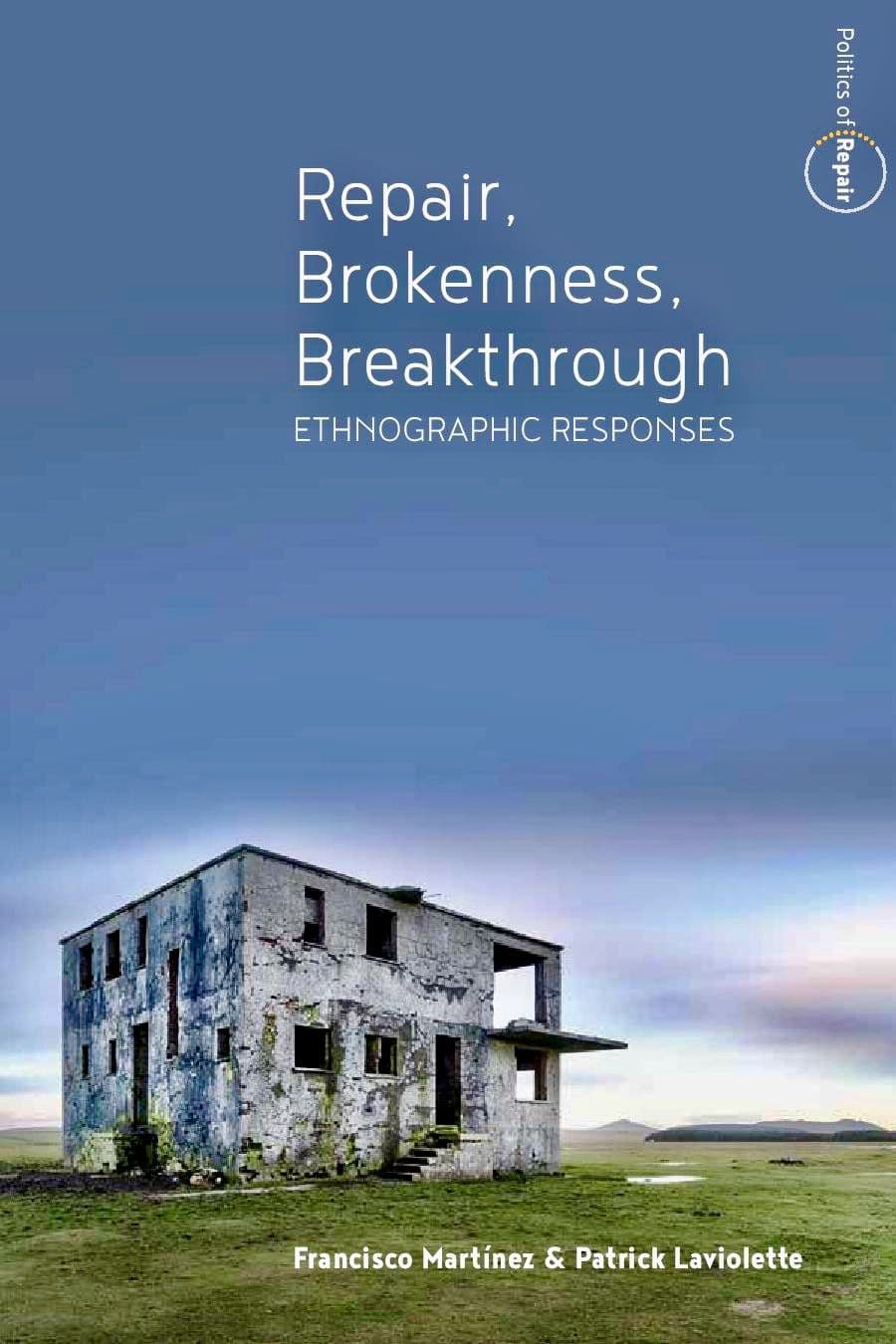
Repair, Brokenness, Breakthrough. Ethnographic Responses, with Patrick Laviolette
Berghahn 2019
We do not repair things because they break, but because we look after them. This book explains that the relevance of repair is not that it happens, but the values attached to it as well as its aesthetic, material and moral implications. In doing so, it reinterprets repair as an ontological and epistemic act, not just fixing things but reconfiguring relationships and knowledge.
The set of contributions illustrates the strong affective power hidden in situations of failure and repair; broken objects often bring strong emotions into play, but also creative reactions. They engage with theoretical and empirical questions such as: What does it mean to claim that something is broken? What is the connection between tinkering and innovation? And how much tolerance for brokenness do different societies have?
This collection redefines repair and brokenness as central to contemporary anthropology, recasting it as a diagnostic of the present. Through diverse ethnographies, it shows how people anticipate crises and transform ruptures into acts of recomposition. As a result, the book positions brokenness as a productive ethnographic lens: opening pathways to breakthrough.
Repair is traditionally associated with the poor. Alas, these practices allow us to shift the emphasis from managing abundance to enhancing sustainability through the re-use of resources. Exploring some of the ways in which repair practices and perceptions of brokenness vary culturally, the compilation argues that repair is an attempt to extend the life of things as well as an answer to failures and gaps.
ToC
Introduction: Insiders' Manual to Breakdown
Francisco Martinez
Head, Hand, Heart: On Contradiction, Contingency and Repair
Caitlin DeSilvey
Chapter 1. Underwater, Still Life: Multi-species Engagements with the Art Abject of a Wasted American Warship
Joshua O. Reno
Beyond the Sparkle Zones
Kathleen Stewart
Chapter 2. "Till Death Do Us Part": The Making of Home Through Holding onto Objects
Tomas Errazuriz
"The Lady is Not There": Repairing Tita Meme as a Telecare User
Tomas Sanchez Criado
Chapter 3. In the House of Un-Things: Decay and Deferral in a Vacated Bulgarian Home
Martin Demant Frederiksen
Undisciplined Surfaces
Mateusz Laszczkowski
Chapter 4. A Ride on the Elevator. Infrastructures of Brokenness and Repair in Georgia
Tamta Khalvashi
Don't Fix the Puddle: A Puddle Archive as Ethnographic Account of Sidewalk Assemblages
Mirja Busch and Ignacio Farias
Chapter 5. What is in a Hole? Voids out of Place and Politics below the State in Georgia
Francisco Martinez
Maintaining Whose Road?
Agnieszka Joniak-Luthi
Chapter 6. Dirtscapes: Contest over Value, Garbage and Belonging in Istanbul
Aylin Yildirim Tschoepe
Repairing Russia
Micha? Murawski
Chapter 7. Village Vintage in Southern Norway: Revitalisation and Vernacular Entrepreneurship in Culture Heritage Tourism
Sarah Holst Kjaer
A Story of Time Keepers
Jerôme Denis and David Pontille
Chapter 8. Keeping Them "Swiss". The Transfer and Appropriation of Techniques for Luxury Watch Repair in Hong-Kong
Herve Munz
Lost Battles of De-bobbling
Magdalena Cr?ciun
Chapter 9. Small Mutinies in the Comfortable Slot: The New Environmentalism as Repair
Eeva Berglund
Why Stories About the Broken Down Snowmobiles Can Teach You A Lot About the Life in the Arctic Tundra
Aimar Ventsel
Chapter 10. The Imperative of Repair: Fixing Bikes - For Free
Simon Batterbury and Tim Dant
Repair and Responsibility: The Art of Doris Salcedo
Siobhan Kattago
Chapter 11. Repair and (Re)creation: Broken Relationships and a Path Forward for Austrian Holocaust Survivors
Katja Seidel
Living Switches
Wladimir Sgibnev
Chapter 12. Brokenness and Normality in Design Culture
Adam Drazin
And Then You See Yourself Disappear (in Iceland)
Jason Pine
Epilogue: This Mess We're In, Or Part Of
Patrick Laviolette
Praise
What I like about this book is its richness in ideas, it opens up a wide range of issues and associations, it invites the reader to see surprising linkages and new aspects of the seemingly trivial everyday. There is a lot of inspiration here for a number of research fields.
Orvar Löfgren, University of Lund
This is a very original, interesting and critical piece of work. It manages to bring the political in touch with the existential in an enlightening and, at moments, moving way.
Paolo Favero, University of Antwerp
Francisco Martínez gehören zu der Generation ethnografisch forschender Kulturwissenschaftlerinnen, die sich von einem Kurzzeitvertrag zum nächsten hangeln und dabei den Wechsel von oft weit auseinanderliegenden Standorten in Kauf nehmen müssen. Das mindert nicht ihren Mut und ihre Energie, mit neuen Ideen für forschend zu erschliessende Felder und alternative, vermittelnde Textformate aufzuwarten.
Regina Bendix, Schweizerisches Archiv für Volkskunde
